560 rezultāti atrasti
Skip results of view Ziņas
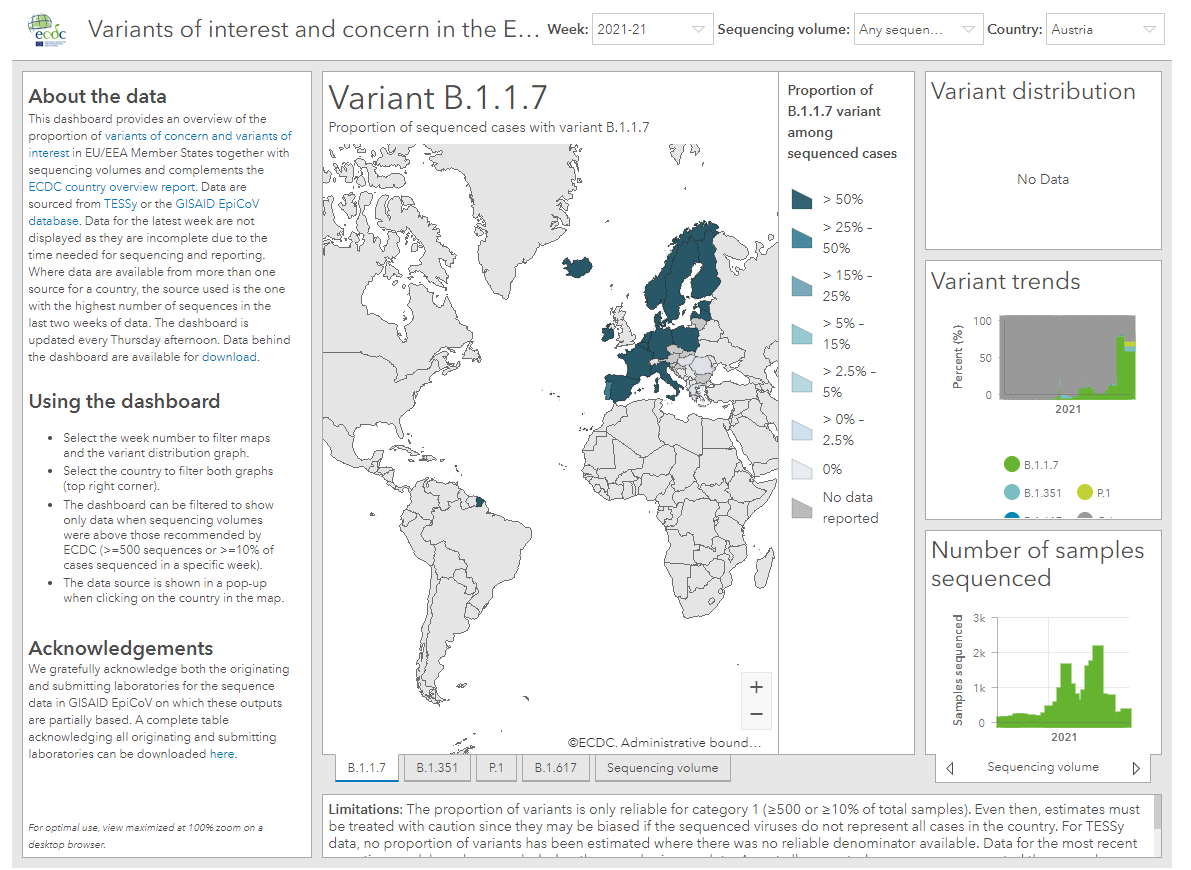
In the news piece on 9 June, we informed you about the Vaccine Tracker developed by the European Centre for Disease Control (ECDC). This EU agency has now also published a dashboard tracking the SARS-CoV-2 variants currently found in the EU and EEA (European Economic Area) countries. The dashboard shows the proportion of variants of concern and of interest, namely the United Kingdom (B.1.1.7), South Africa (B.1.351), Brazil (P.1) and India (B.1.617.1, B.1.617.2, B.1.617.3) variants, and their sequencing volumes. The data is obtained from the European Surveillance System (TESSy) and the GISAID
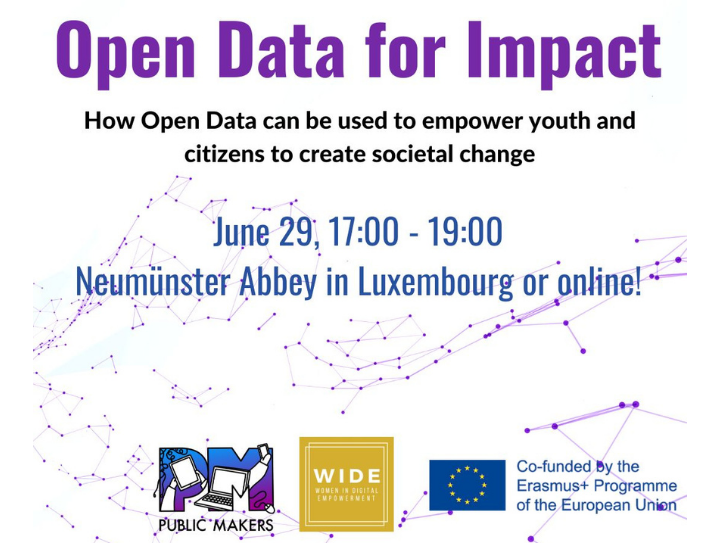
On 29 June, Women in Digital Empowerment (WIDE) wrap up the Erasmus+ Project on Open Data “Public Makers” with a live event. WIDE is a non-profit organisation from Luxembourg, offering practical support and hosting activities to empower women to seize opportunities in the digital economy, and building more diversity in the digital workforce, and IT pipeline. Do you want to understand how open data can be used to empower people to create societal change? Then this is a great opportunity for you. You will learn more about open data, discover use cases, and meet the different stakeholders in this
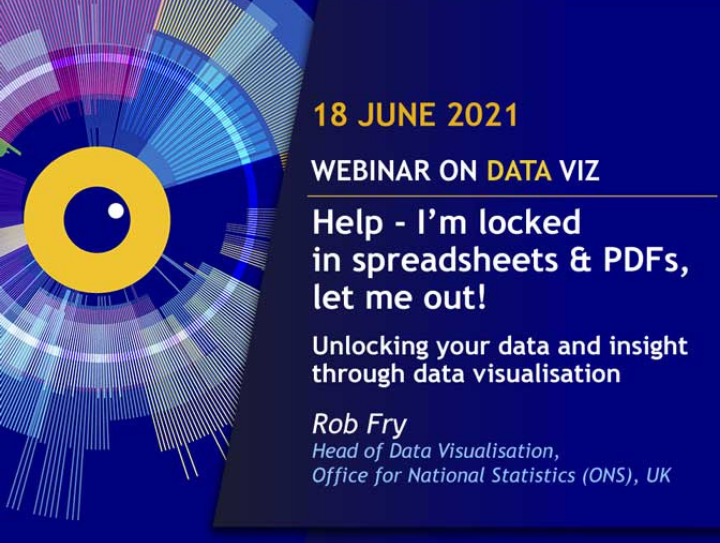
On 18 June, Rob Fry – Head of data visualisation at the Office for National Statistics (ONS) in the UK – shared his insights on data visualisation in the EU DataViz webinar: “ Help – I’m locked in spreadsheets & PDFs, let me out”. In the webinar, he explains how the ONS has helped unlock data by making UK statistics more visual. Their multi-disciplinary team is made up of data visualisation specialists, data journalists, graphic designers, and social media specialists, working to create reliable and accurate national statistics on a variety of topics. The webinar covered the journey of the ONS

CONNECT University is the flagship knowledge-sharing project of the European Commission’s Directorate General on Communication Networks, Content and Technologies (DG CONNECT). The initiative presents innovative technologies, closely connected with EU policies, to the general public and showcases the latest digital trends and developments. The aim of the project is to foster inspiration, identify opportunities and threats, and to enable cooperation between the EU institutions, industry, academia, and international organisations. This year, CONNECT University is organising the sixth edition of

In November 2020, the European Commission put forward the Data Governance Act as part of the European Strategy for data. The Data Act follows up on this proposal and aims to facilitate data sharing across the EU and between sectors by increasing trust in data intermediaries and strengthening data sharing mechanisms. Now, the Commission invites citizens, businesses, online platforms, academics, civil society, administrations, and other enthusiasts to share their input for creating a fair data economy that provides safe access to data for everyone. On the Data Act, Margrethe Vestager, Executive

On 4 April, Barnaby Skinner presented his insights on data visualisation in the EU DataViz webinar: “ How to make your data easier to visualise”. As the lead of the visuals department at the Swiss newspaper “Neue Zürcher Zeitung” he works closely with information designers, software developers and data journalists and has focused on digital transformation throughout his journalism career. Visualising and presenting data in a way that it is easy to digest while still informative, is becoming an ever-more critical asset as the amount of data grows increasingly. Sharing structured and machine

Fighting youth unemployment, improving sustainability of the food system, bringing EU decision-making closer to citizens, these are some of the ambitions put forward by the teams of application developers selected to compete in the finals of this year´s edition of the open data competition, EU Datathon. Organised under the first-ever EU Open Data Days, EU Datathon 2021 started in March with the call to data enthusiasts worldwide to propose ideas for applications using open data from the portal data.europa.eu. The deadline for the submission of proposals was 21 May. The preselection jury had 96
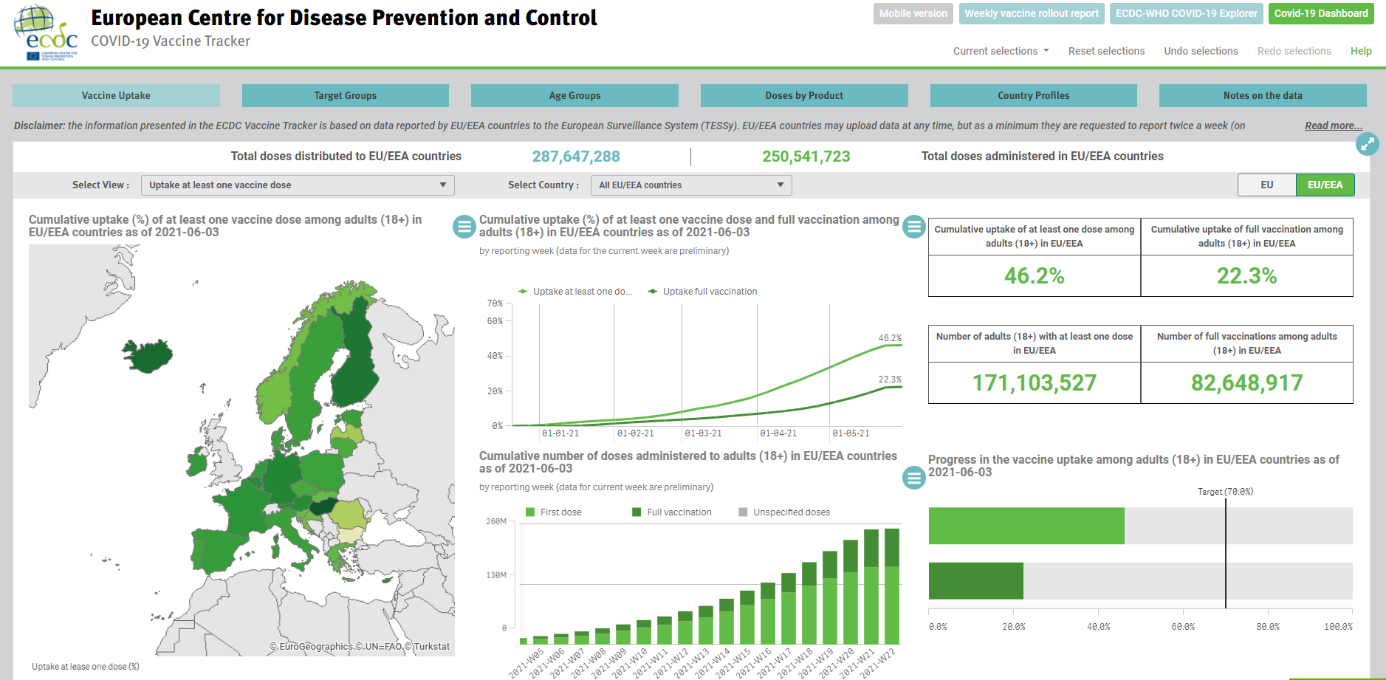
As of May 2021, the European Centre for Prevention and Control (ECDC Disease) has released an update to the COVID-19 Vaccine Tracker. The interactive dashboard provides an overview of the progress in vaccinating adults (18+) across the EU/EEA Member States. It presents data from the number of doses distributed by the various manufacturers of different vaccines, including the first and second doses. The dashboard allows for a detailed, accurate, and up-to-date visualisation of: • Vaccine uptake, • Target groups, • Age groups, • Doses by product, and • Country profiles Have a look at the

In April this year, the EU Open Data Portal and the European Data Portal consolidated into one service providing access to European data under the name of data.europa.eu. The new portal, brought to you by the Publications Office of the European Union, provides access to public data resources from EU institutions and agencies, EU Member States, and other European countries. Currently, you can find over 1 million datasets, from 36 countries, along 13 thematic categories. The datasets and available content serve many uses and stakeholders. If you are a journalist or researcher, the portal can be
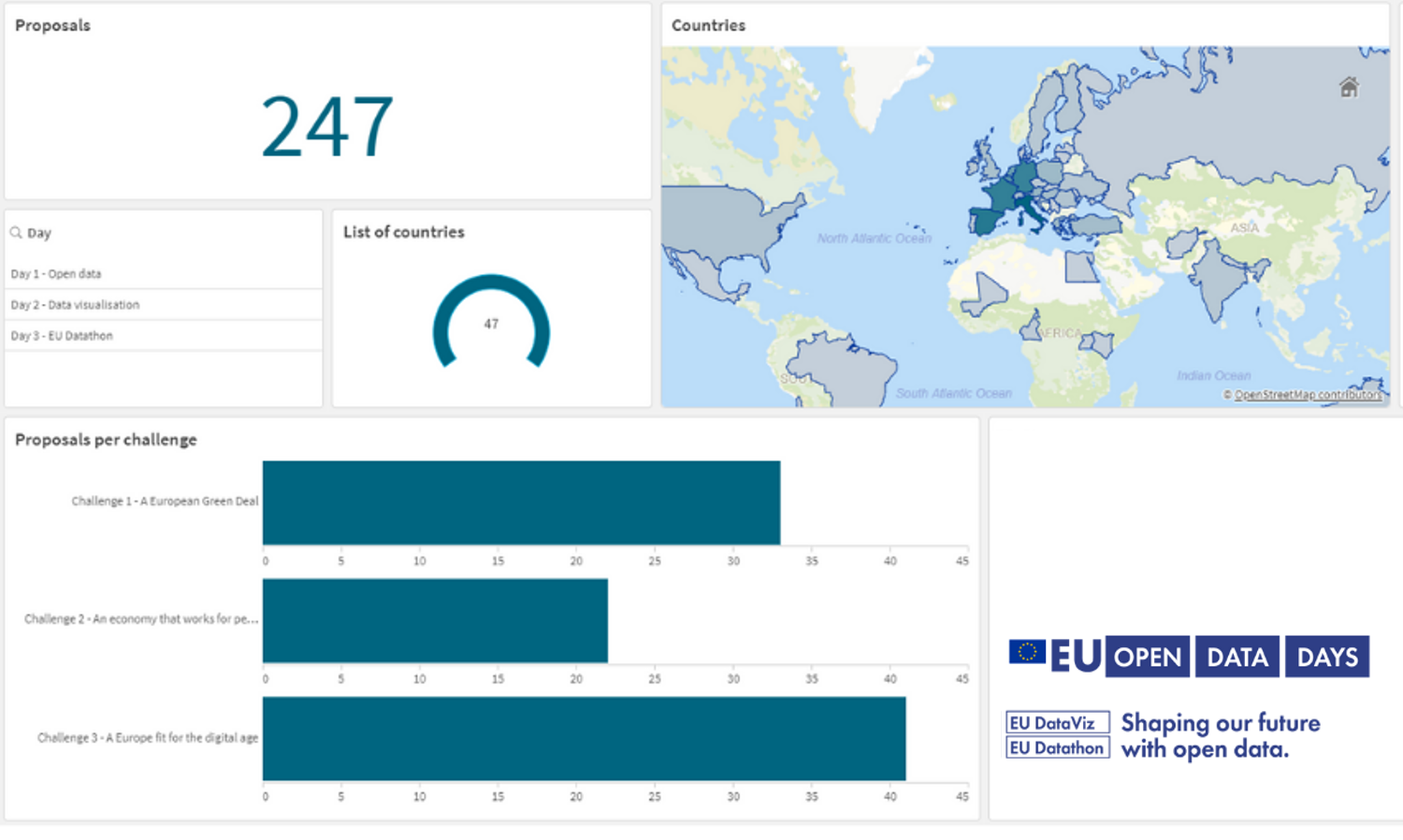
From 23 – 25 November, the Publications Office of the European Union hosts the first-ever EU Open Data Days, the free online event to discuss and share best practices on open data and data visualisation. Over the past few months, data enthusiasts have been submitting their proposals to participate in this event and contribute to shaping our digital future with open data. The call for proposals received a total of 247 submissions from 47 countries, from the United States to Australia, from the Russian Federation to Chile. More than half (60%) of the proposals came from the private sector, 14%
